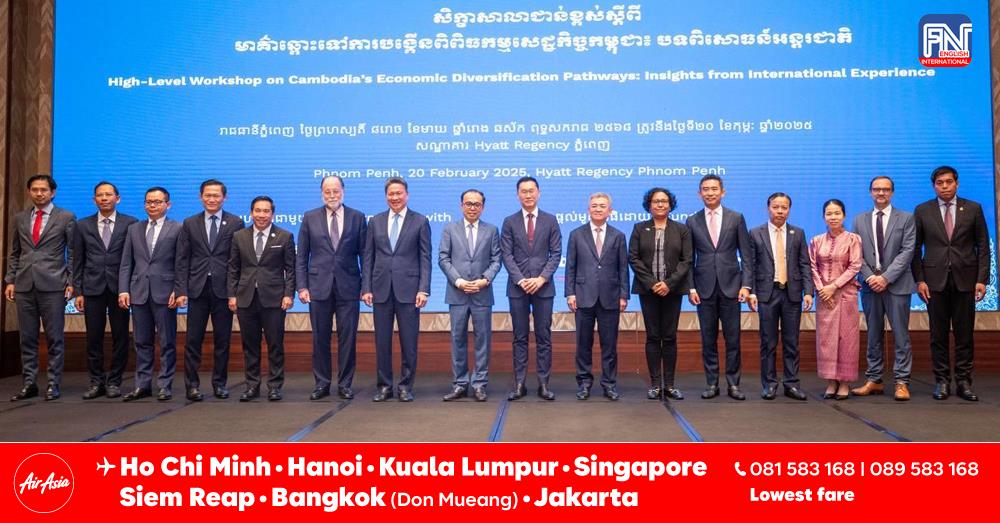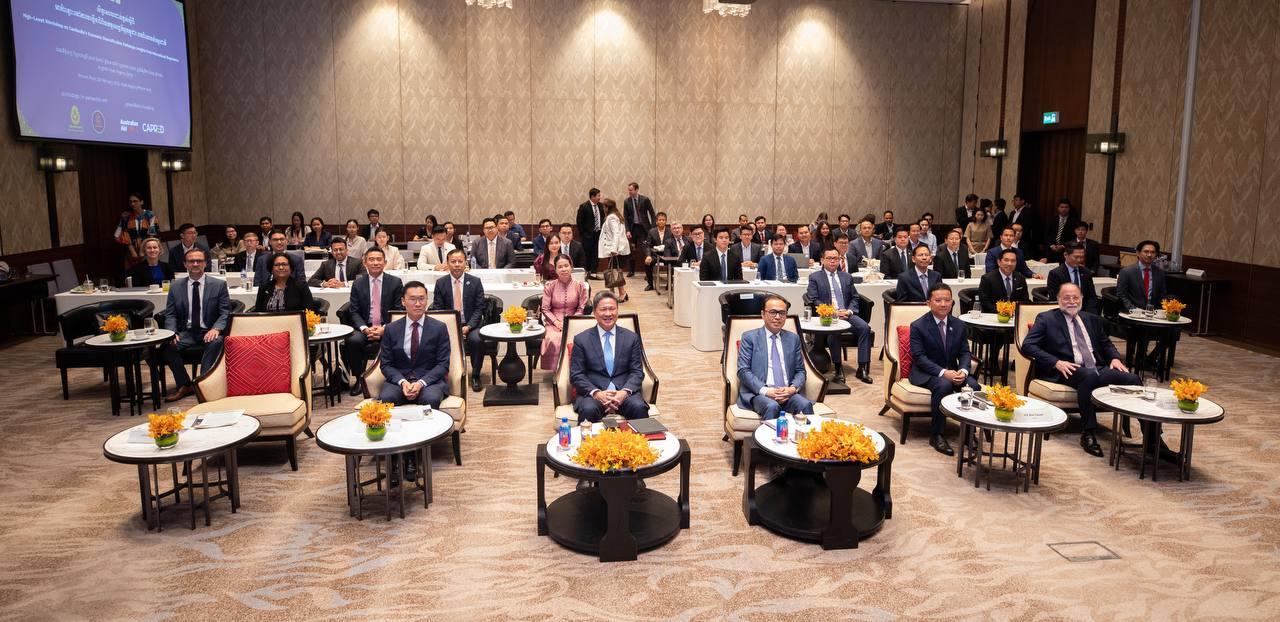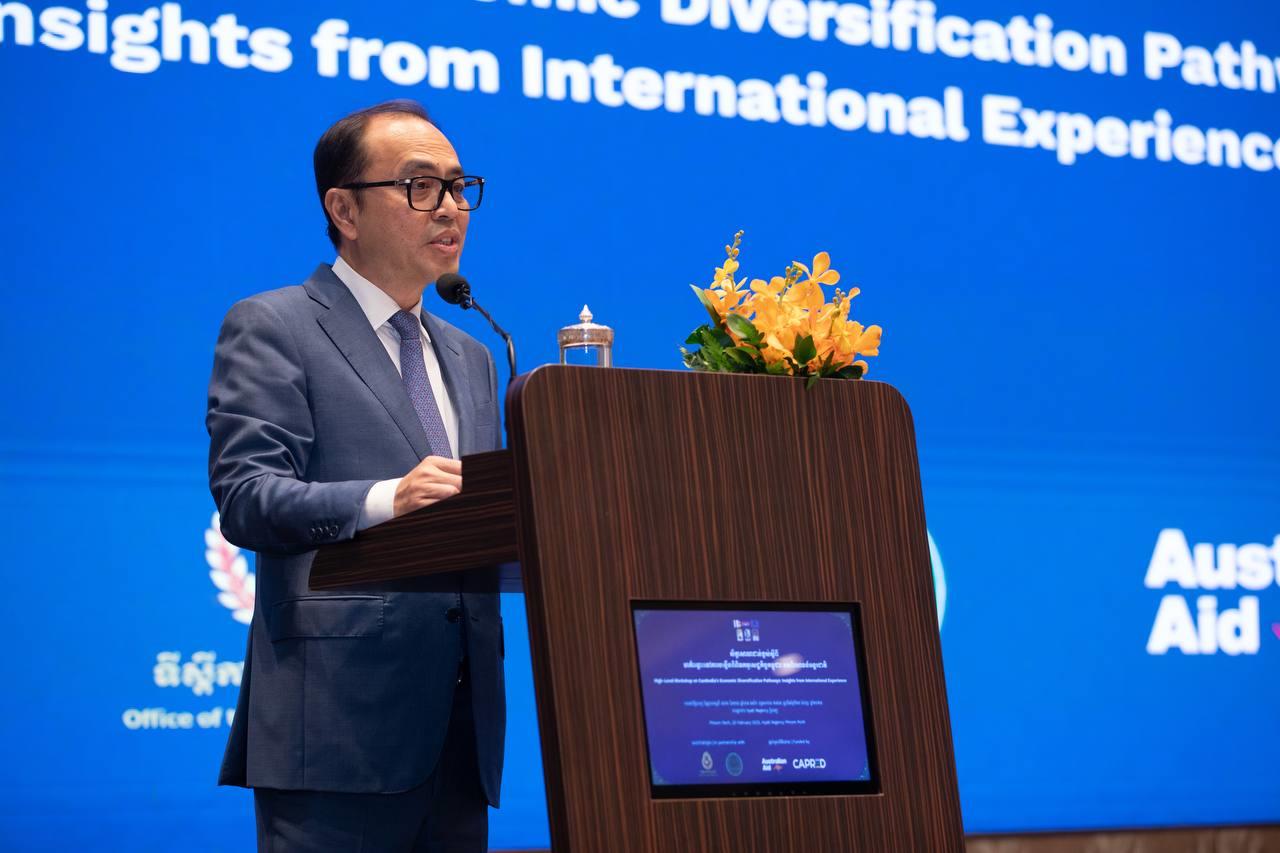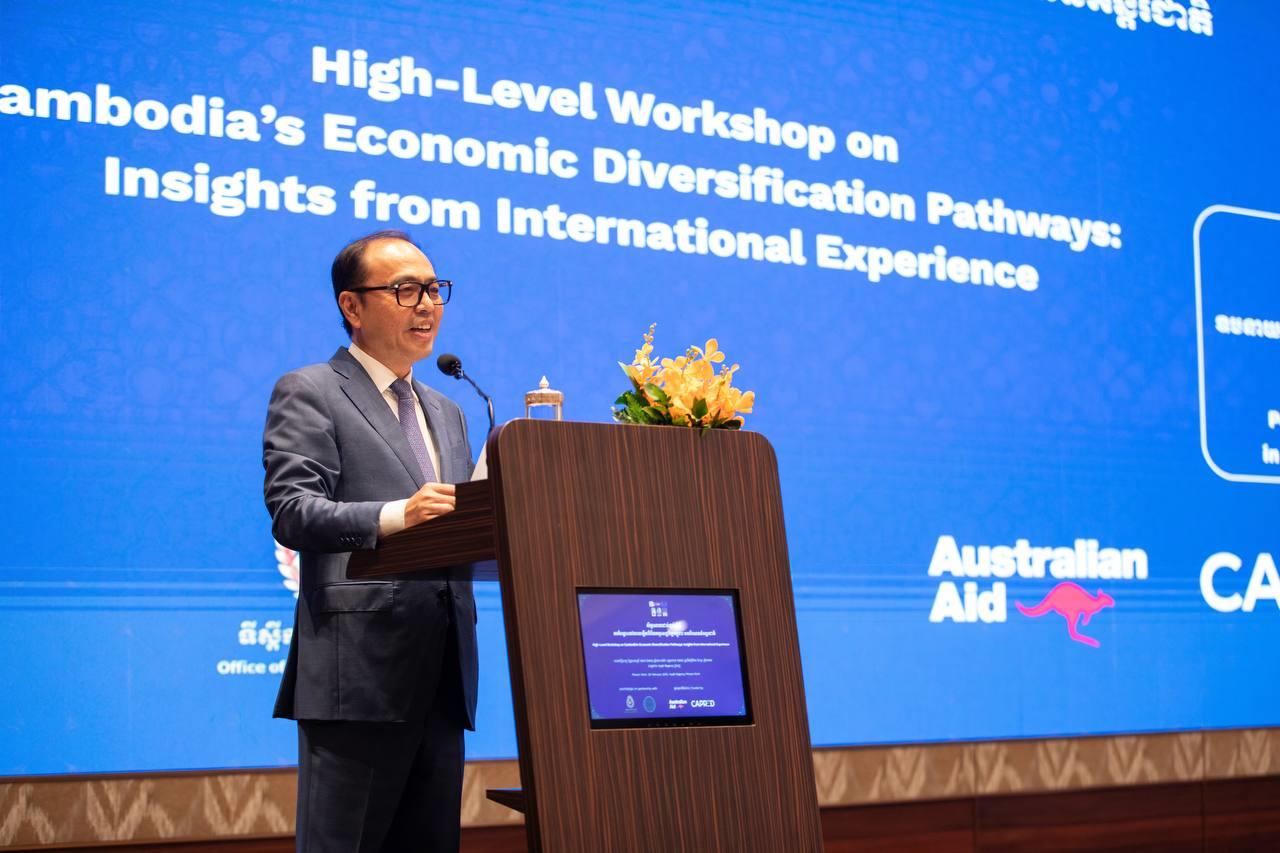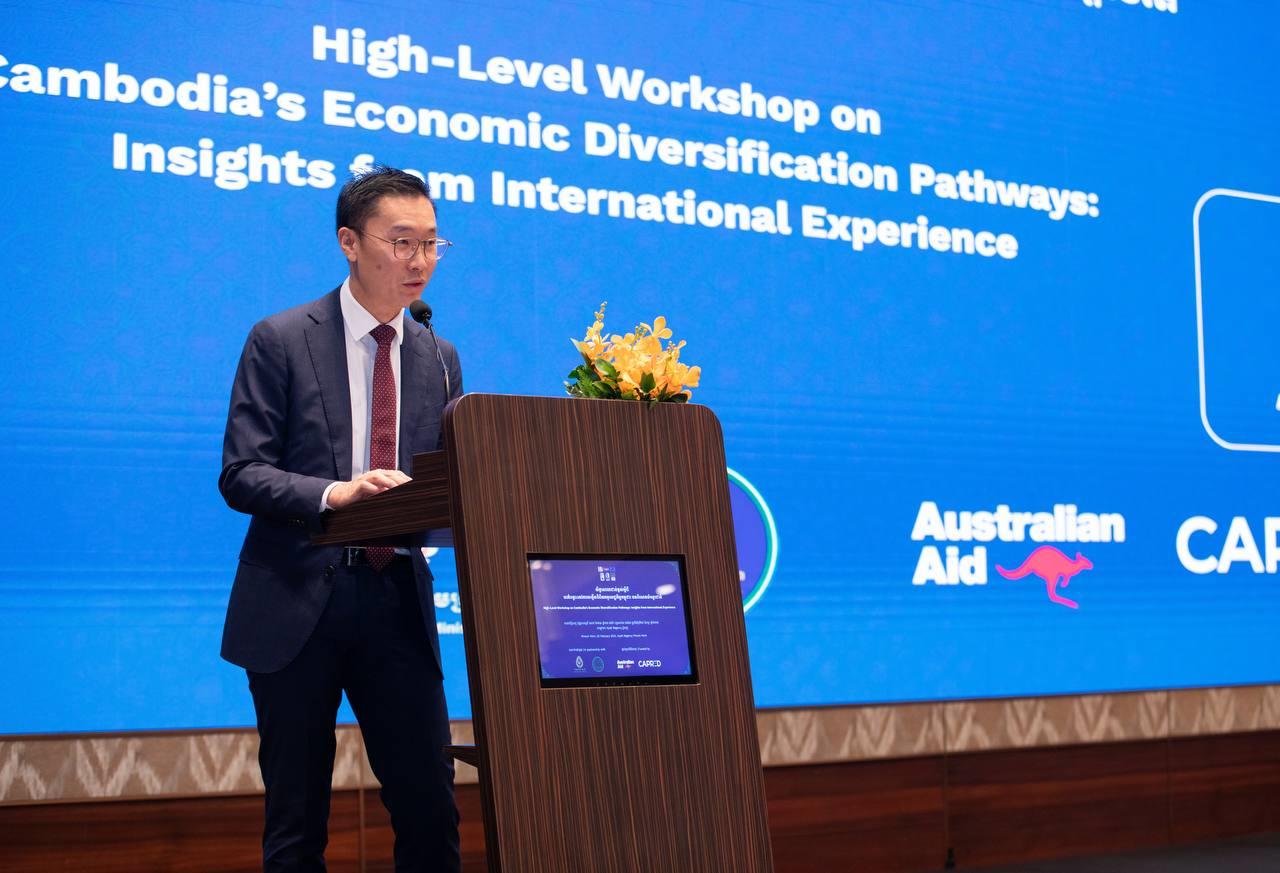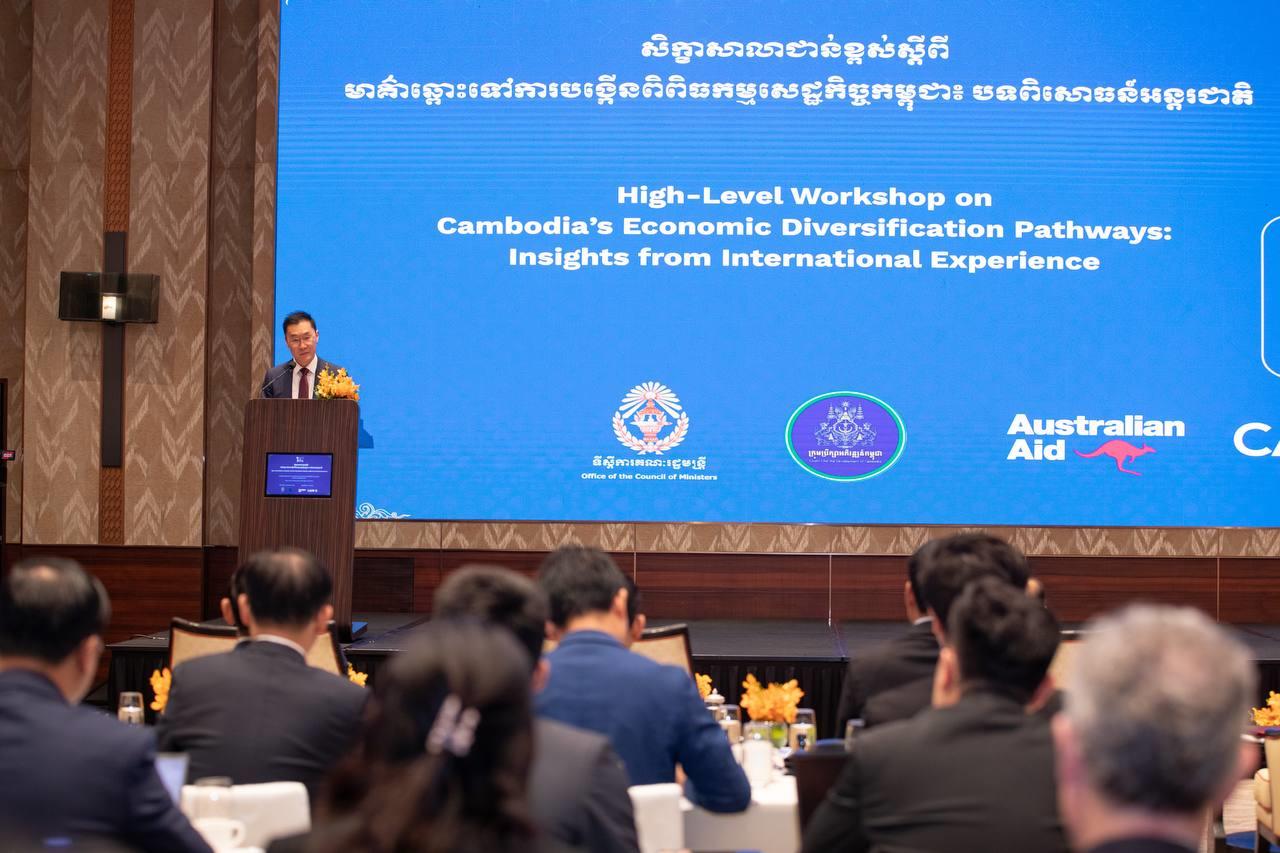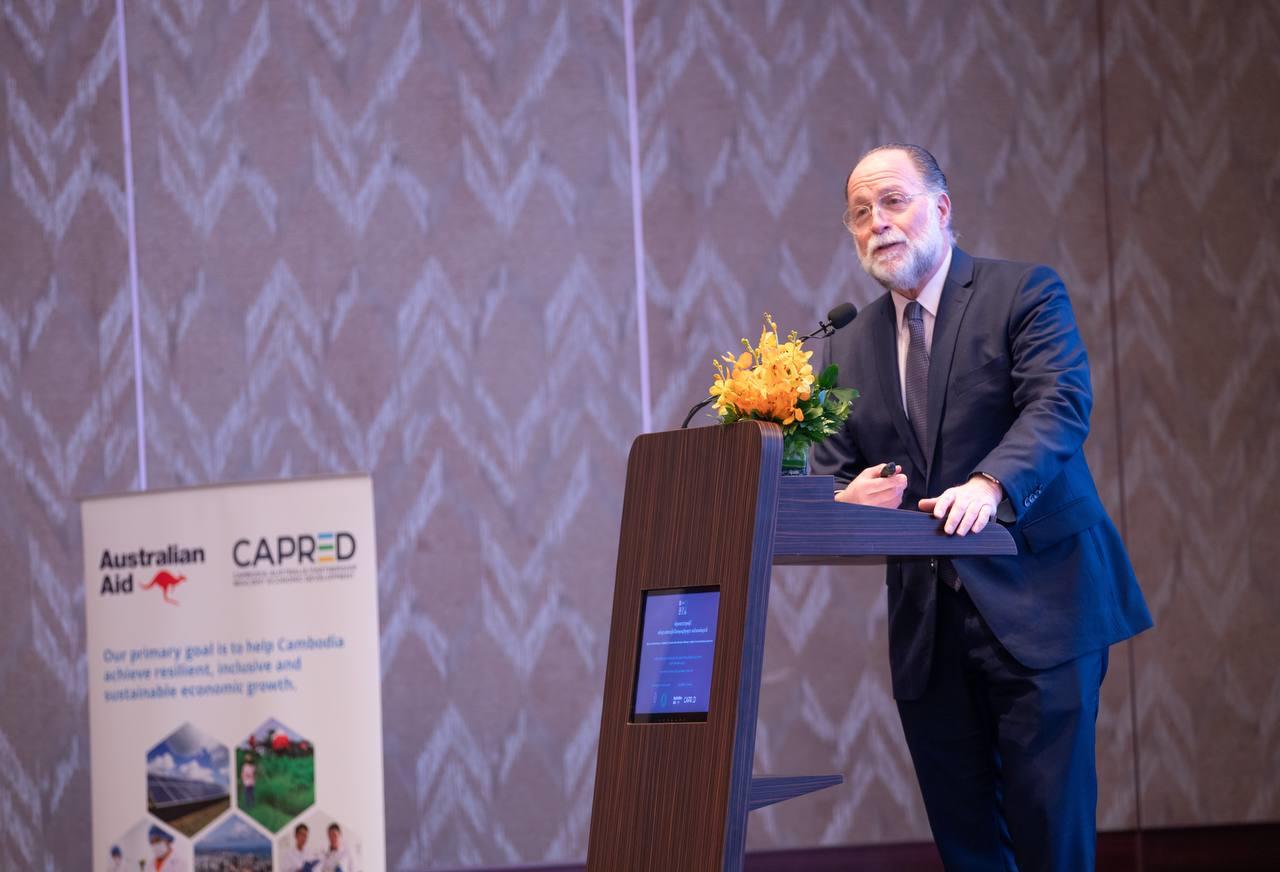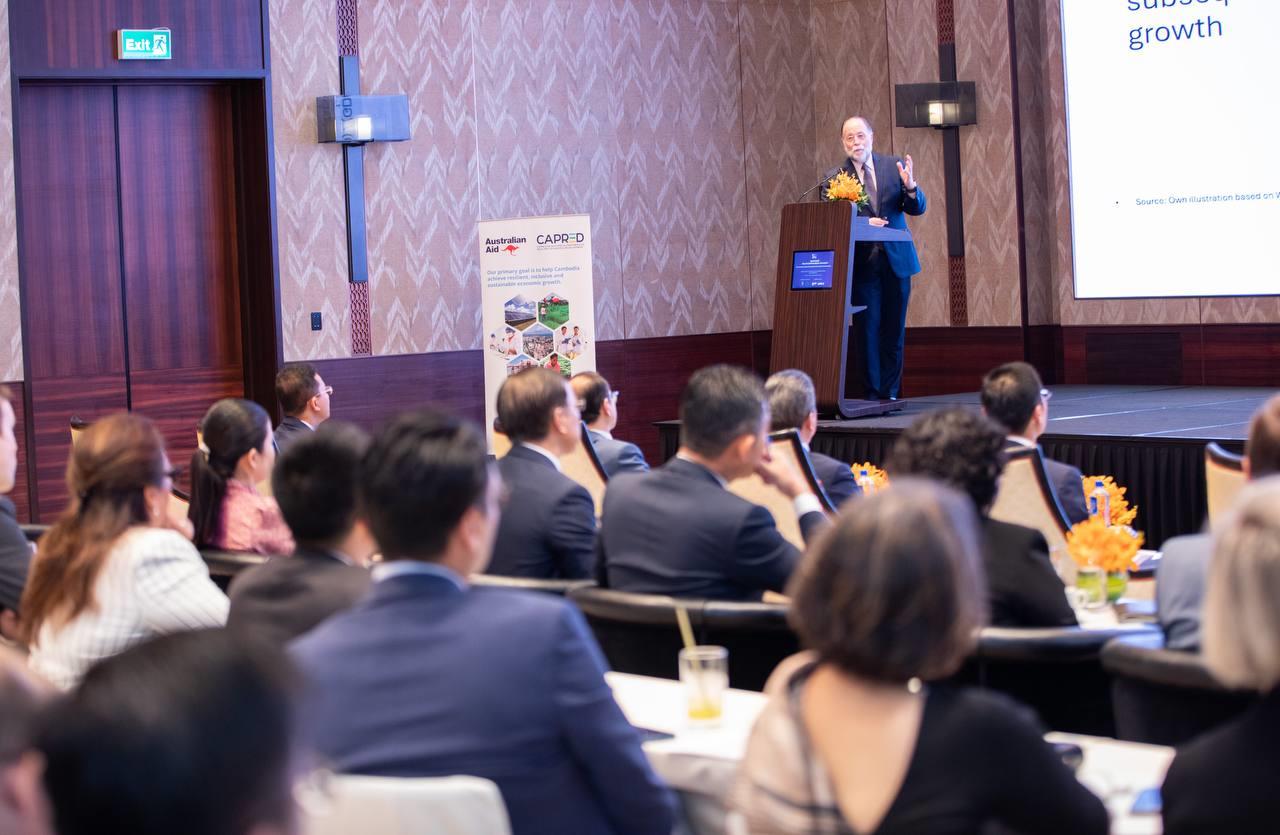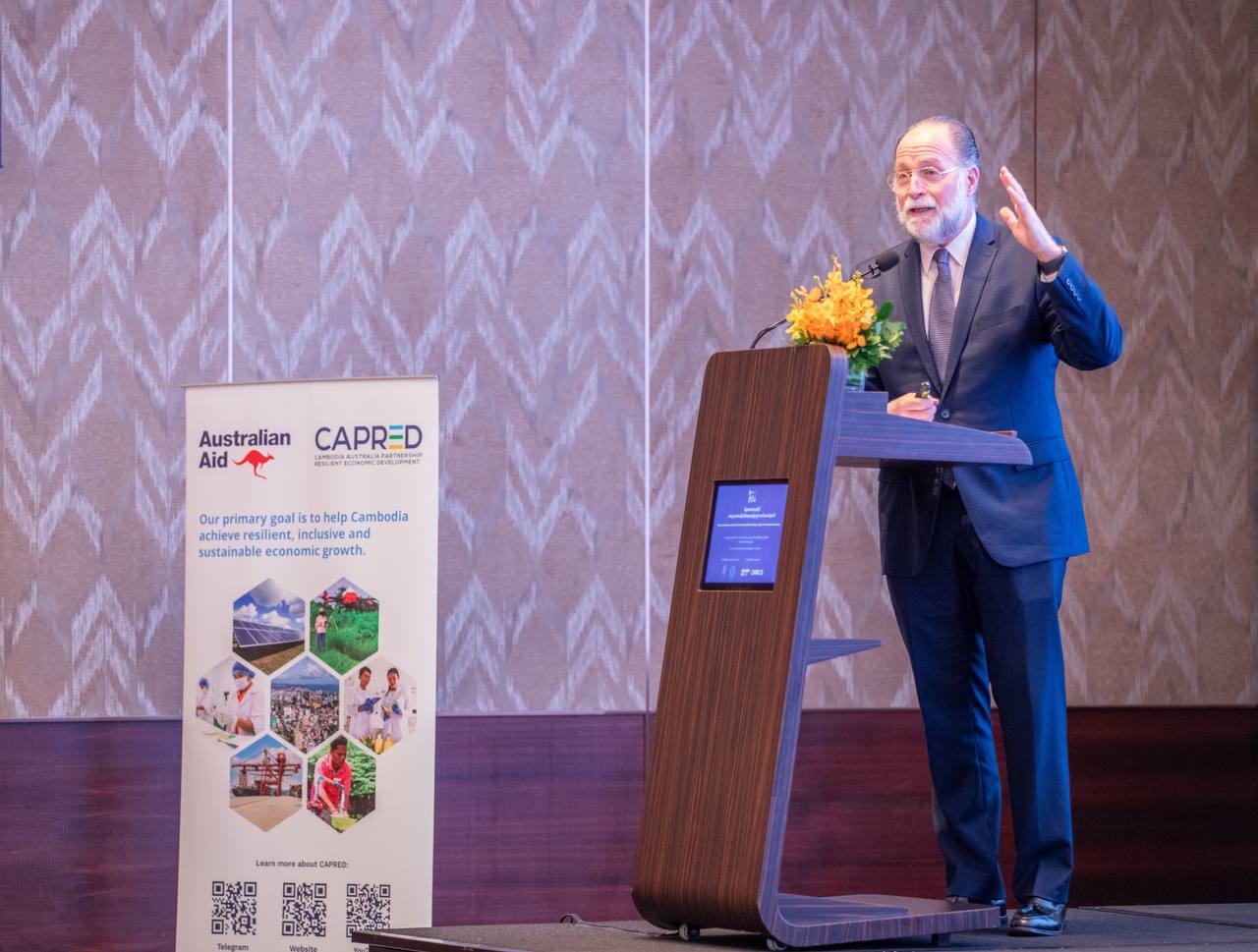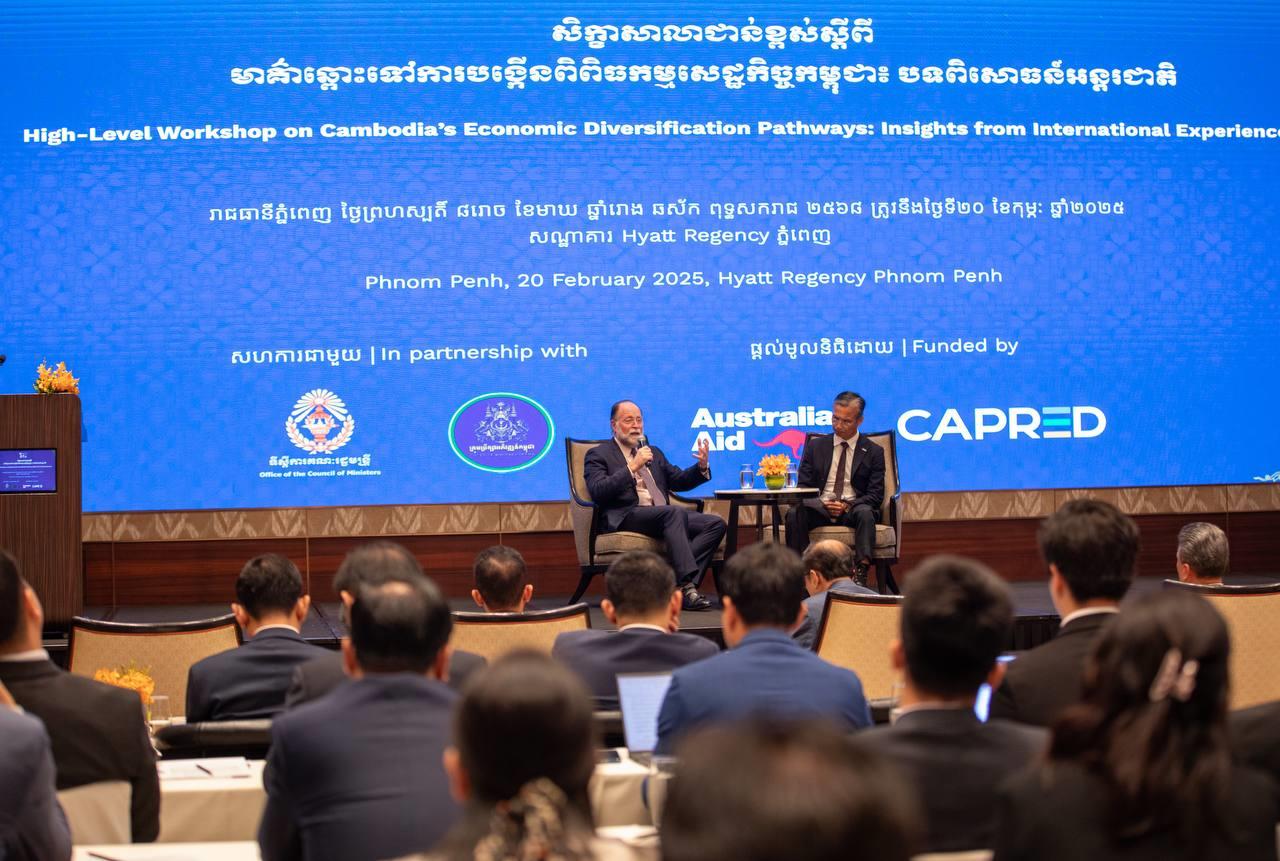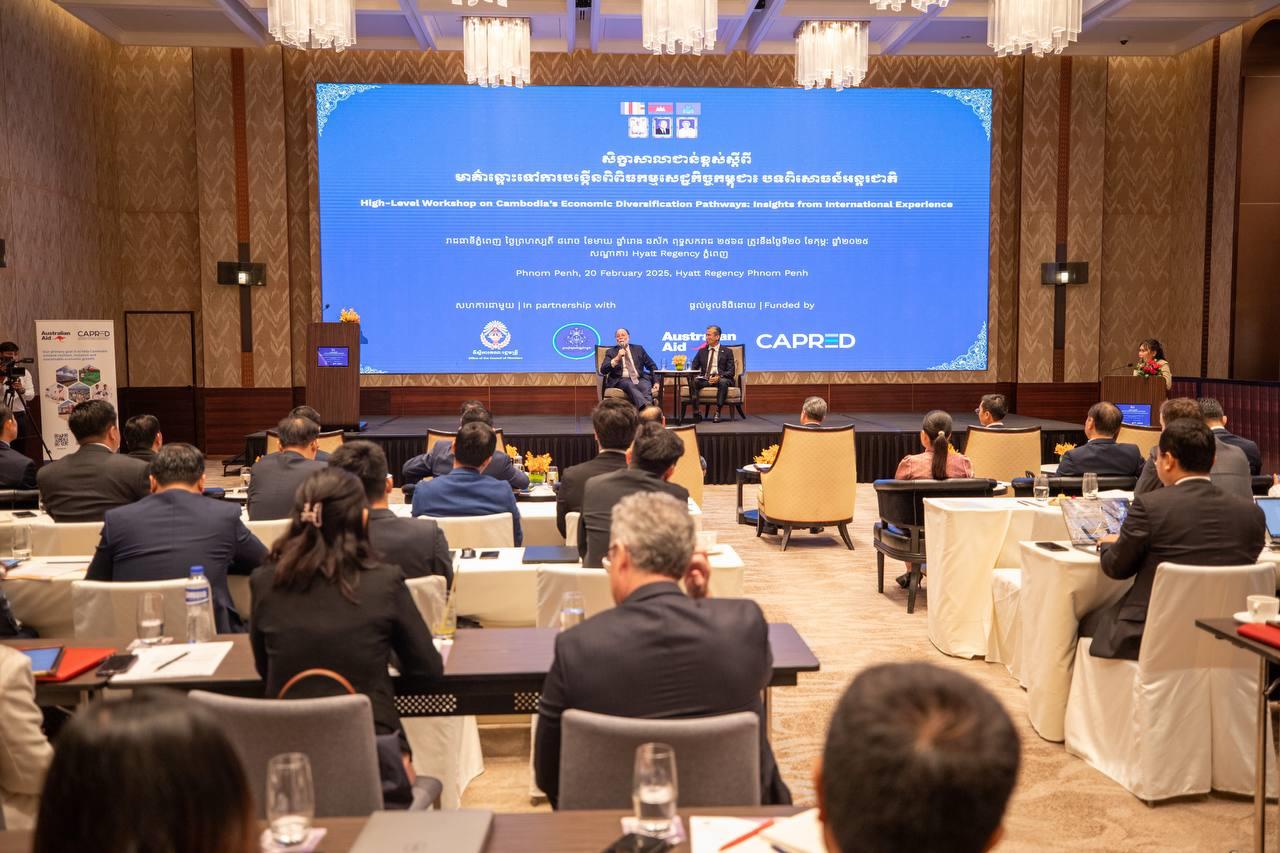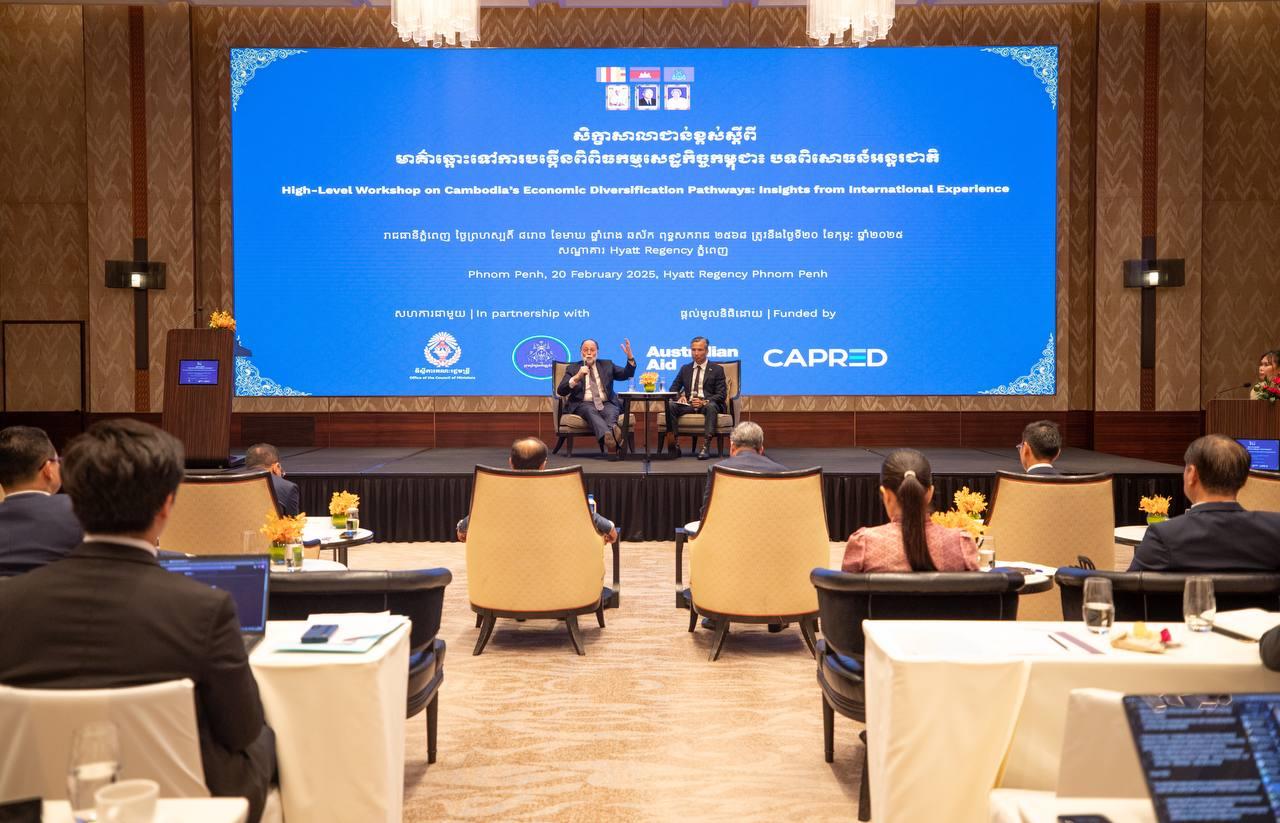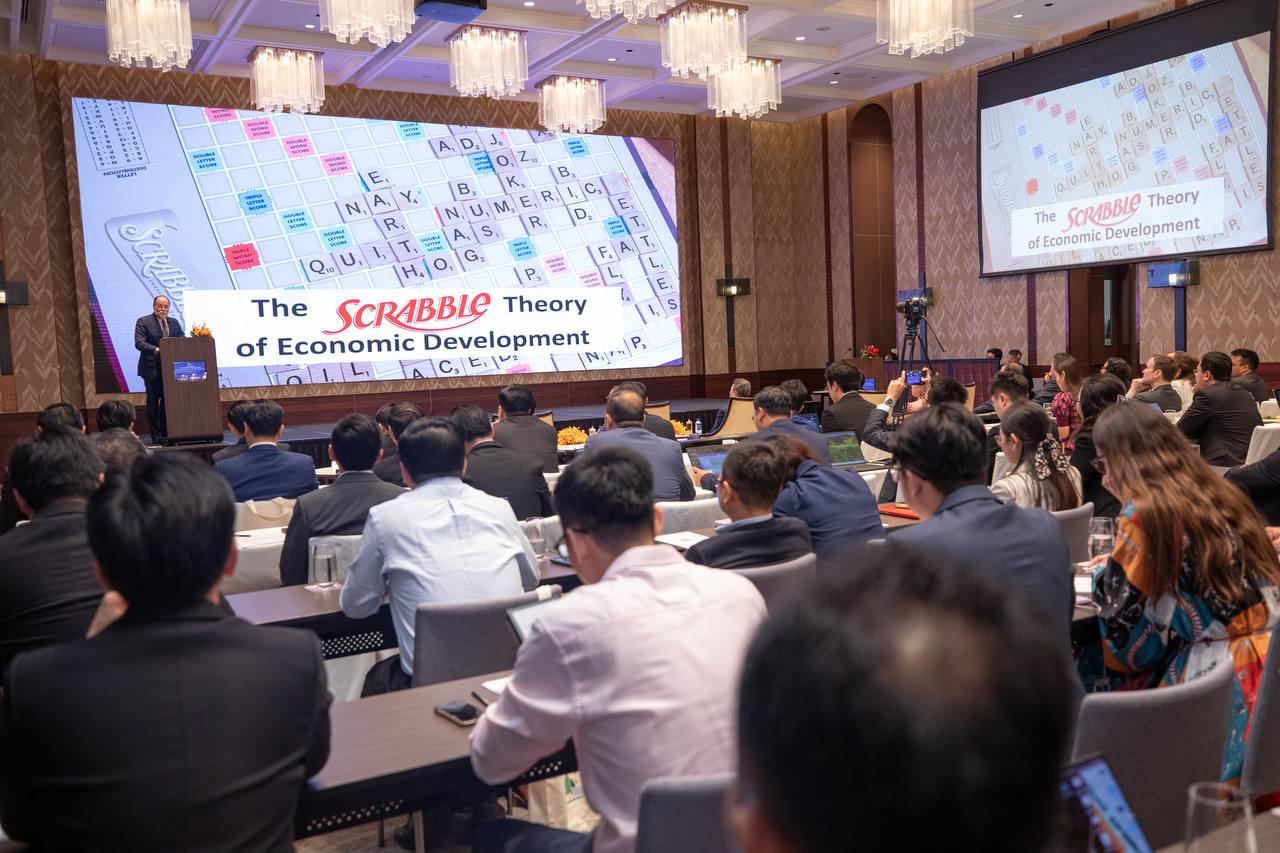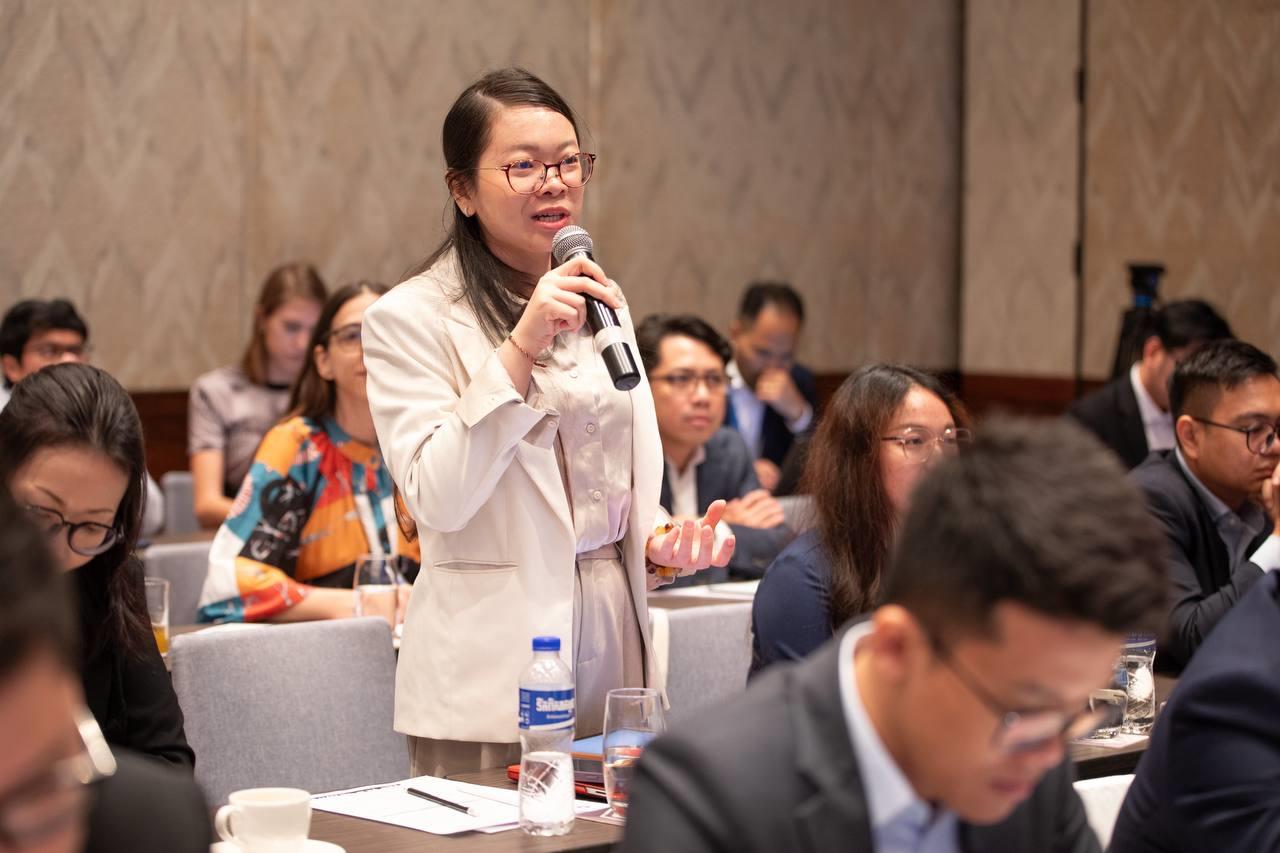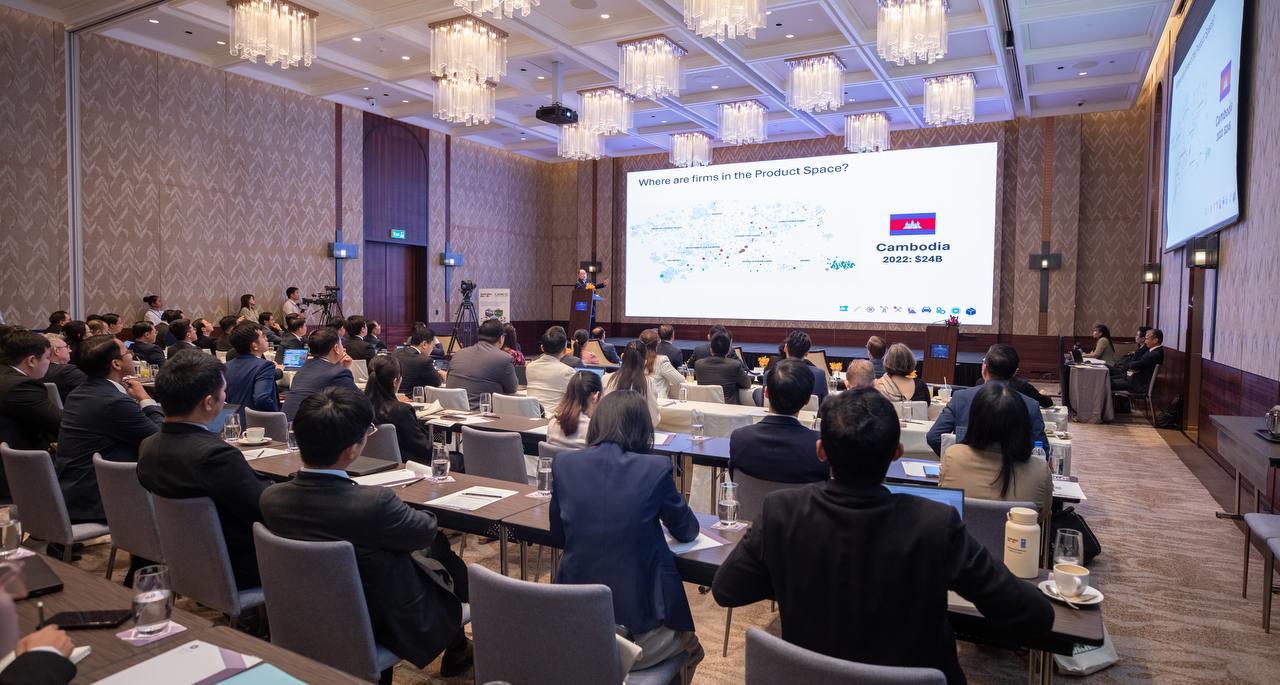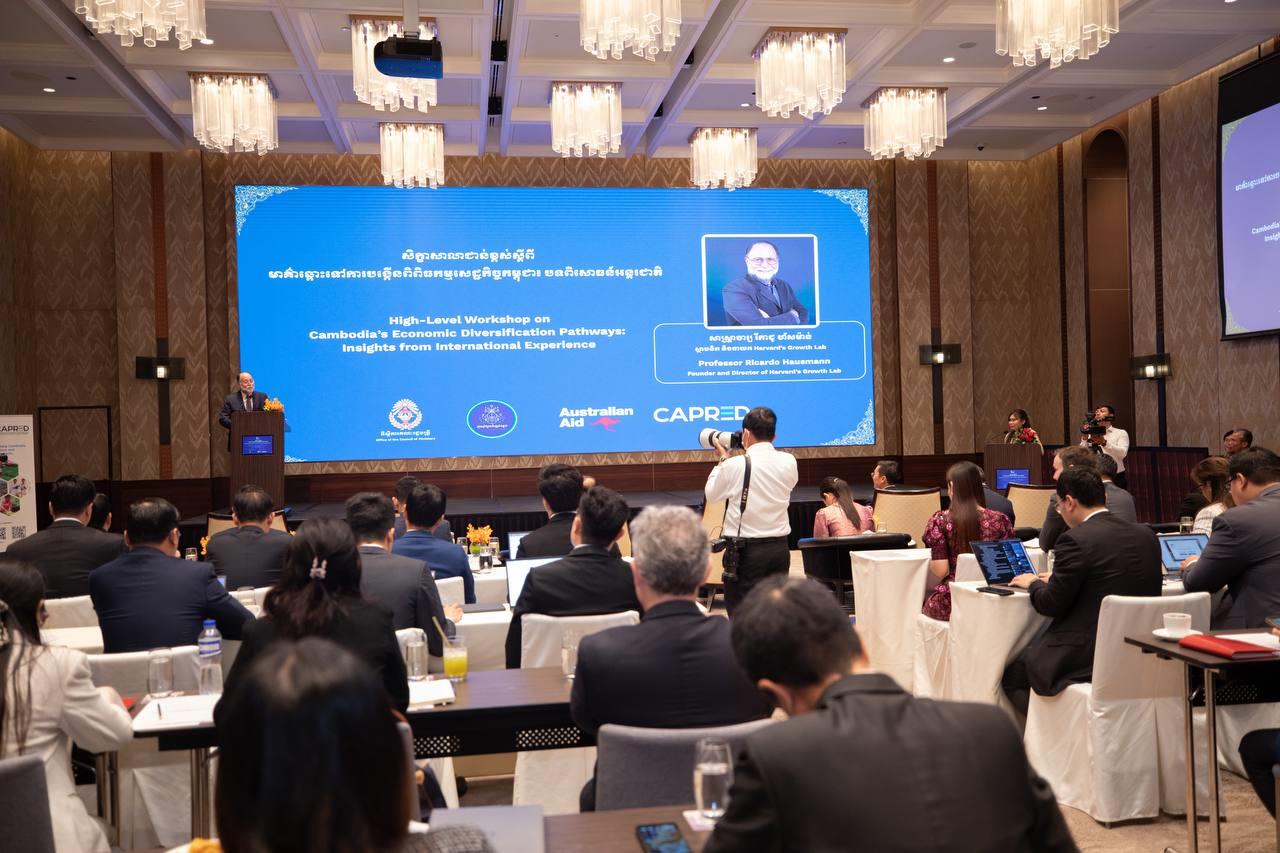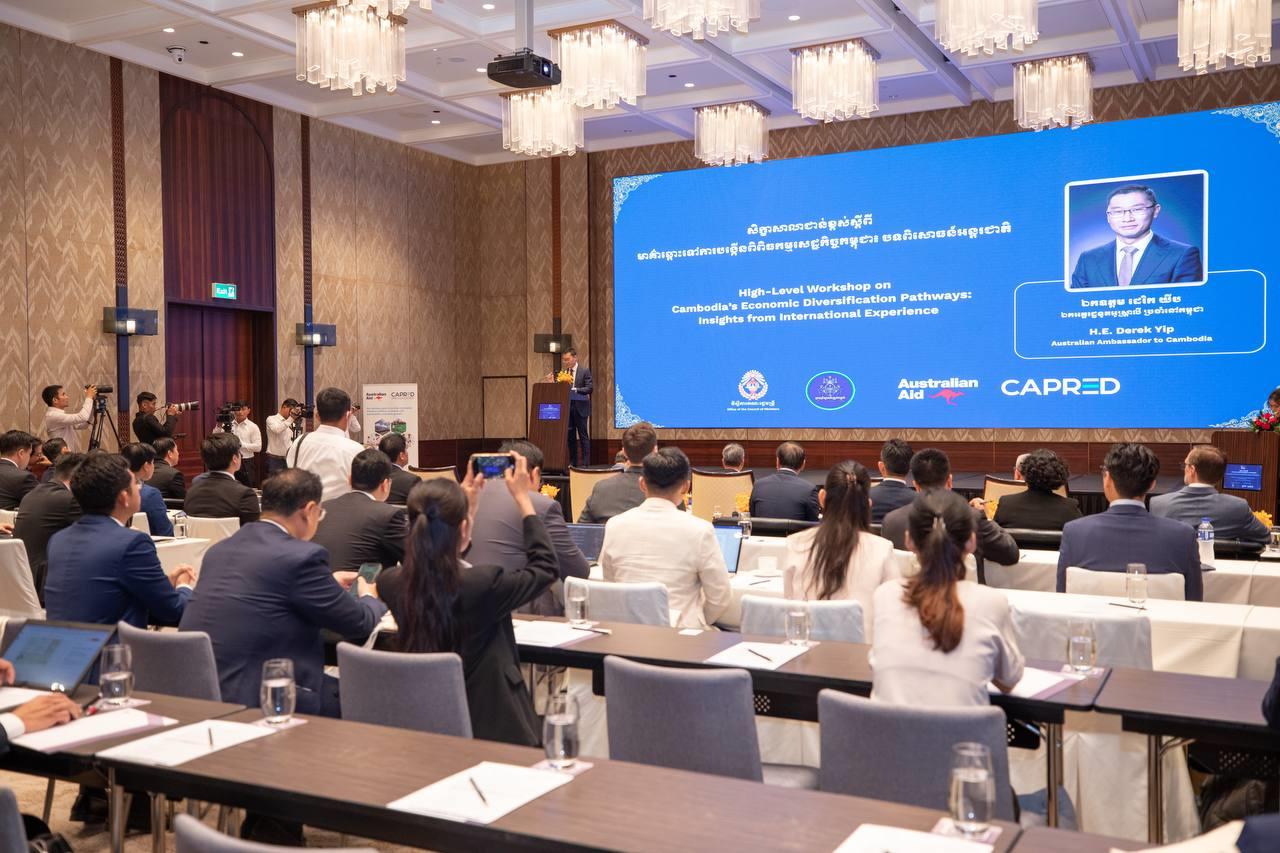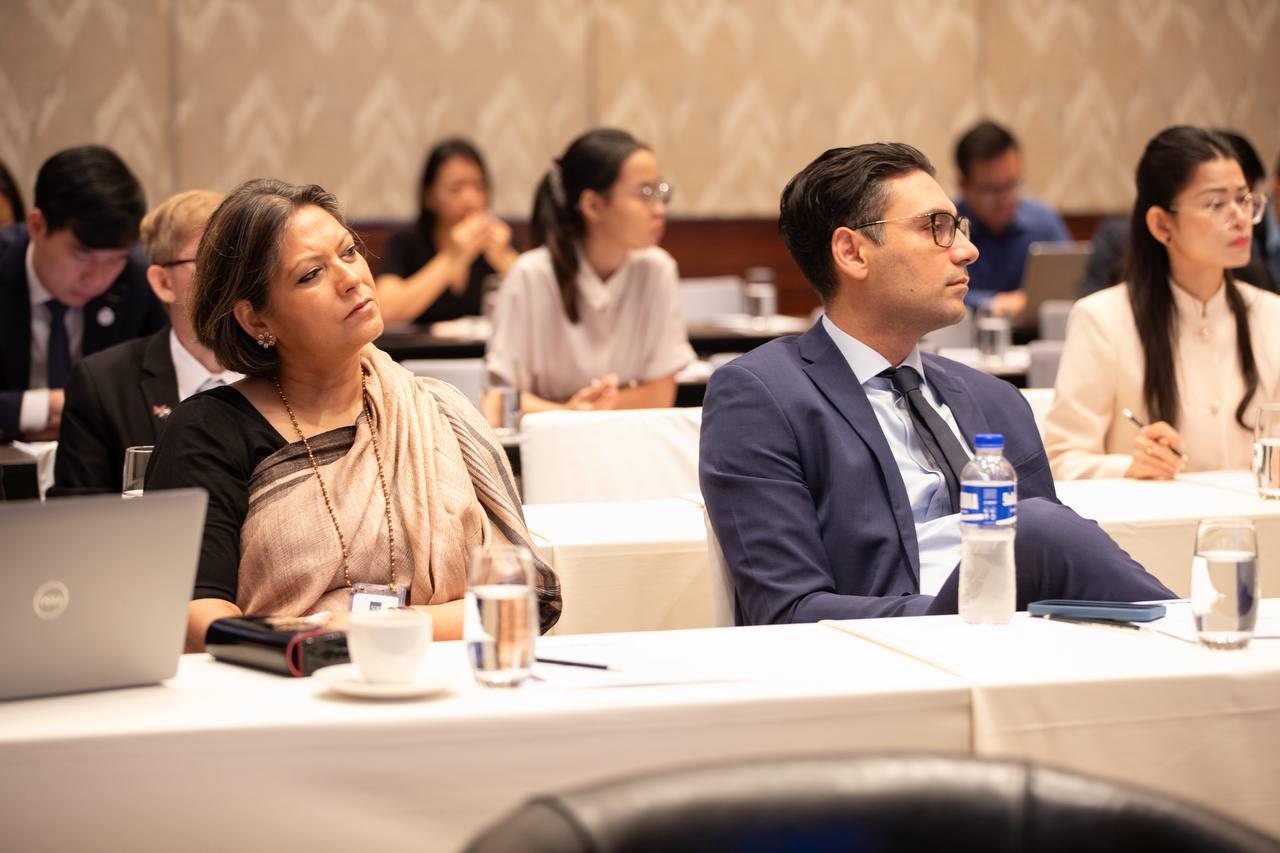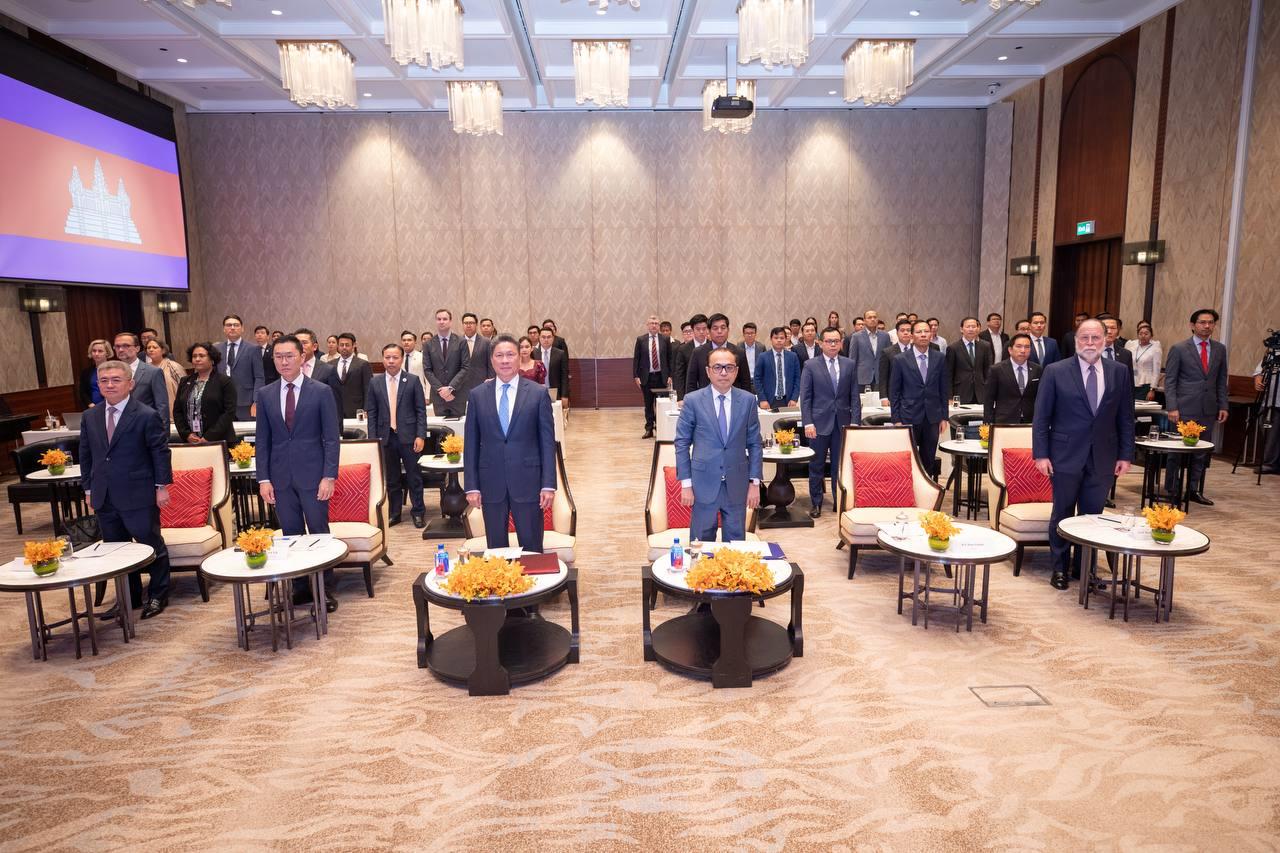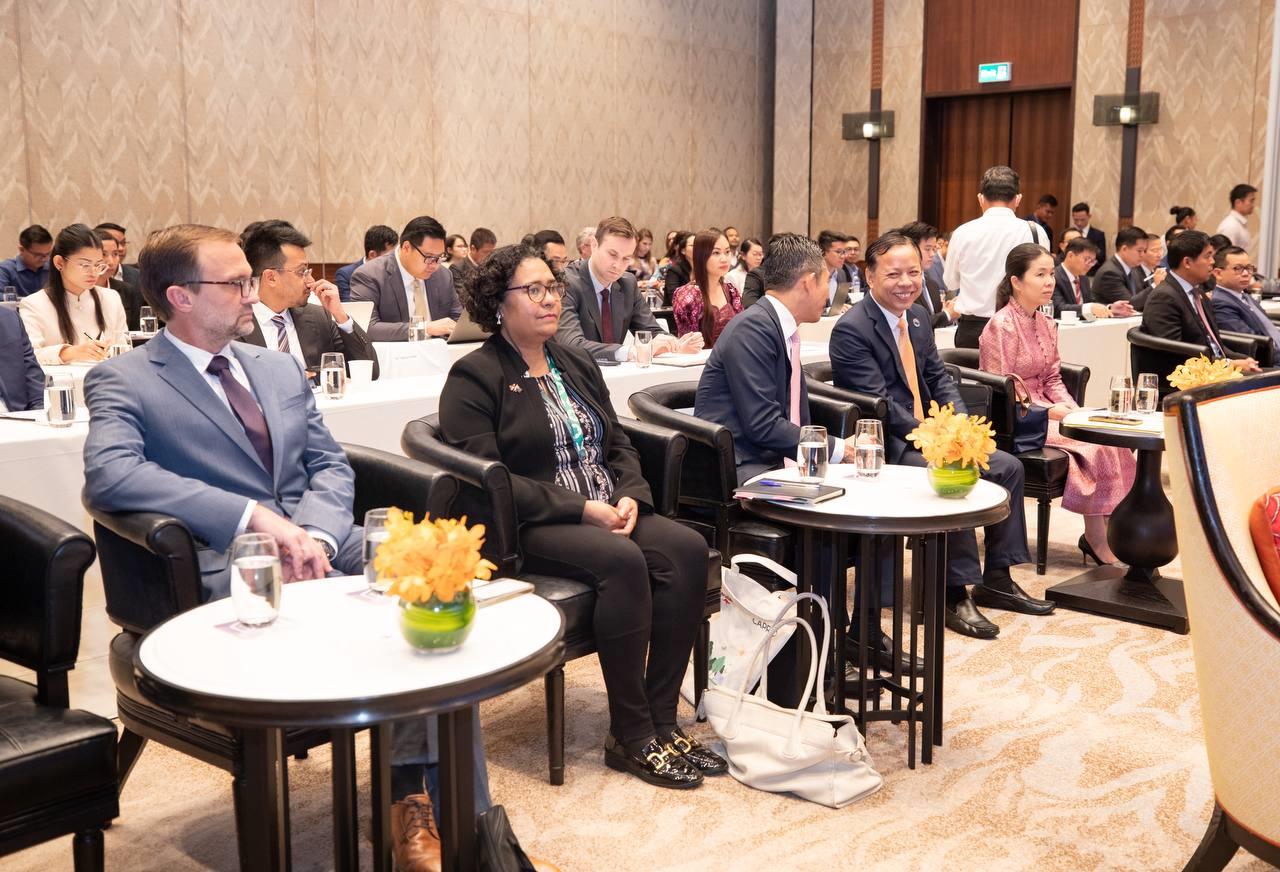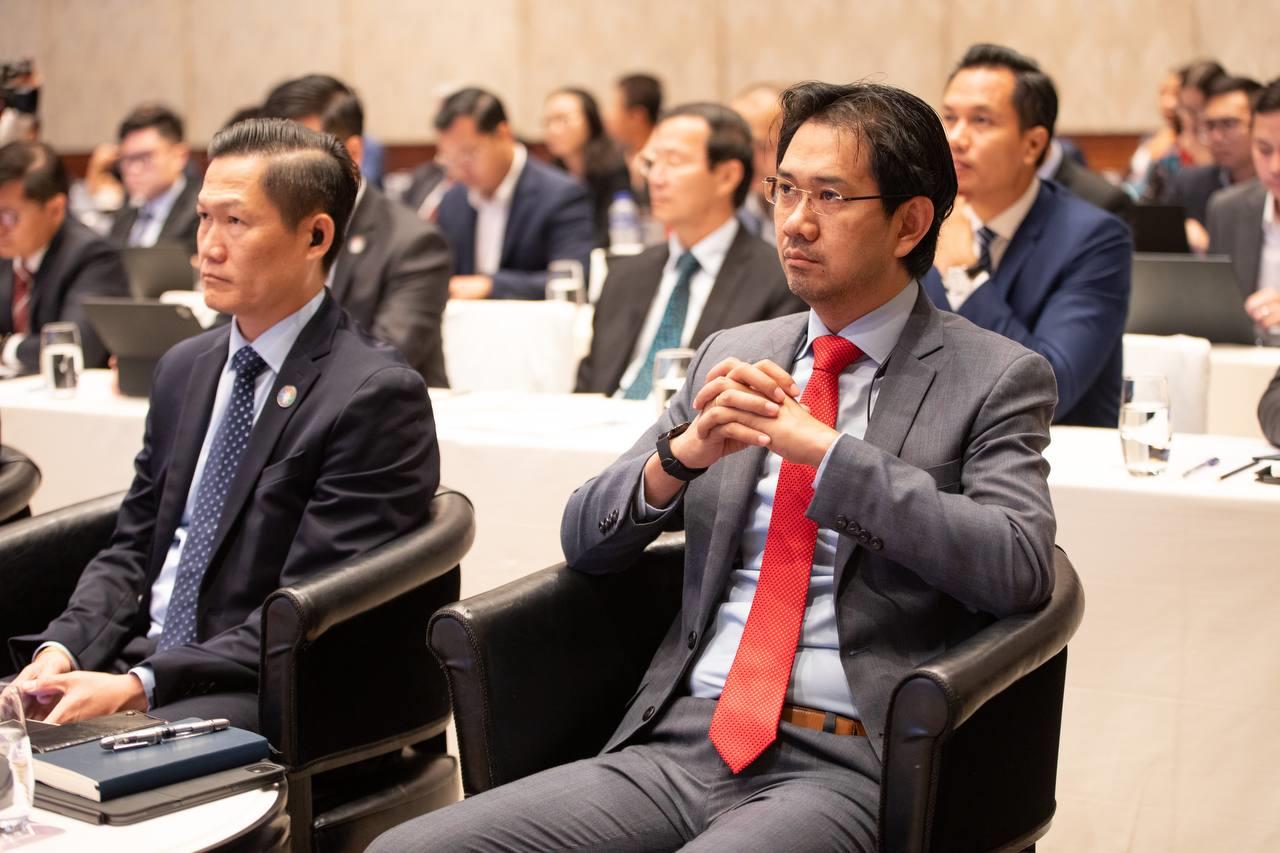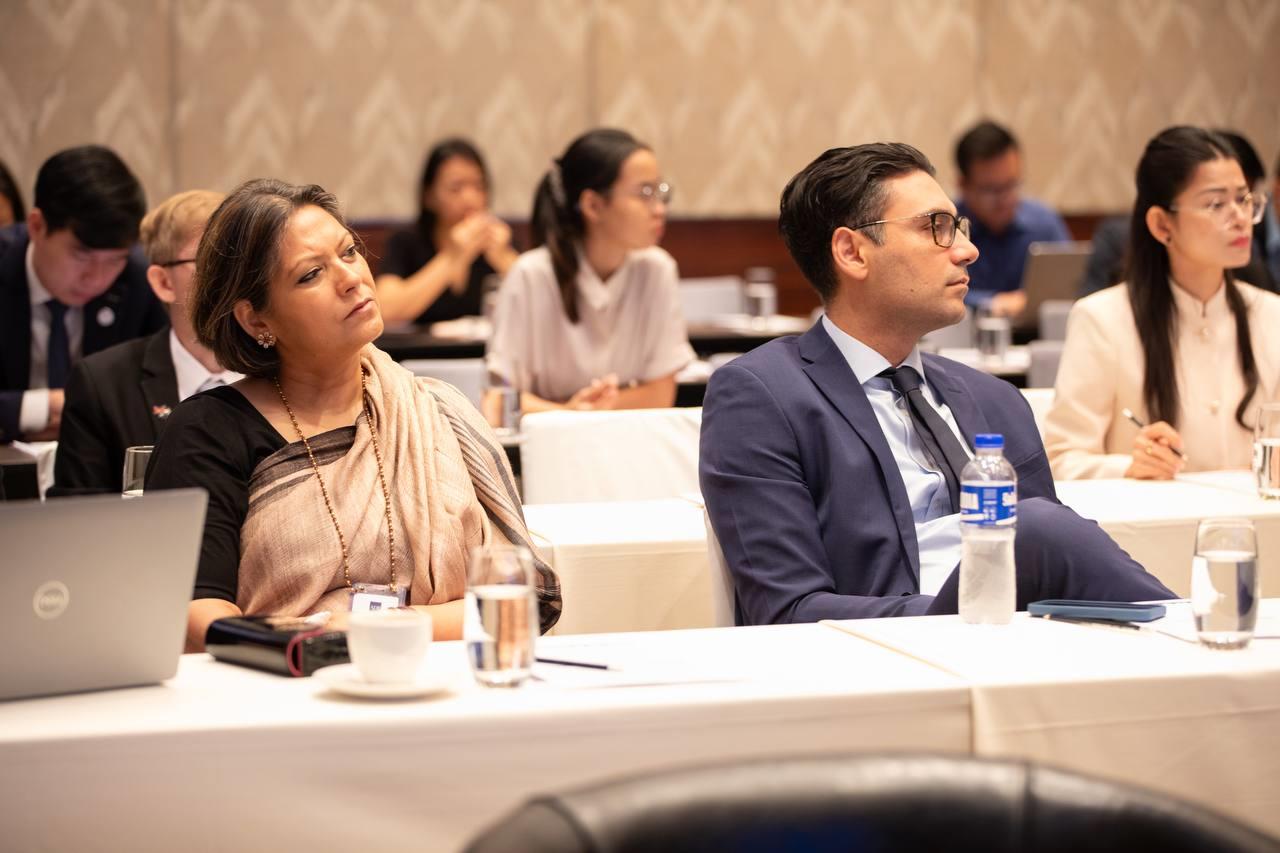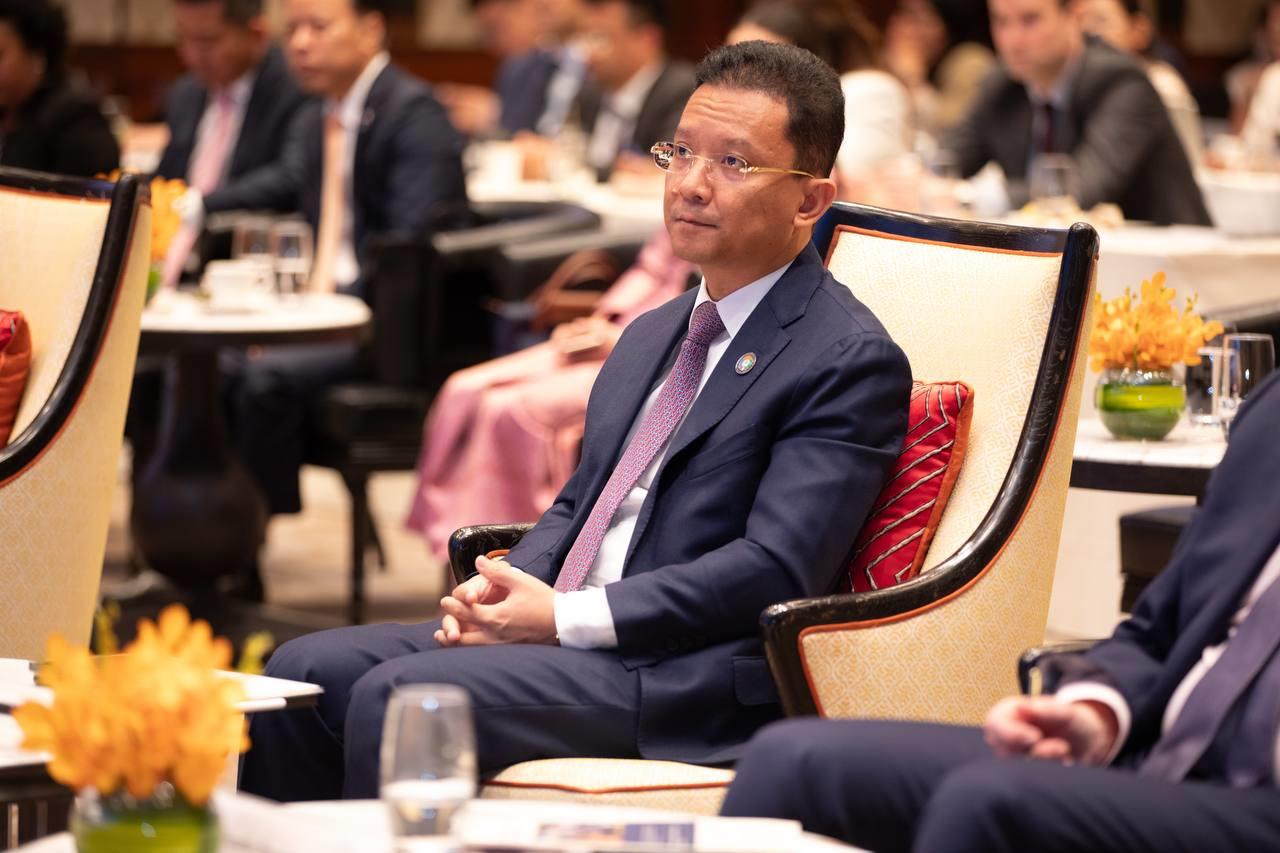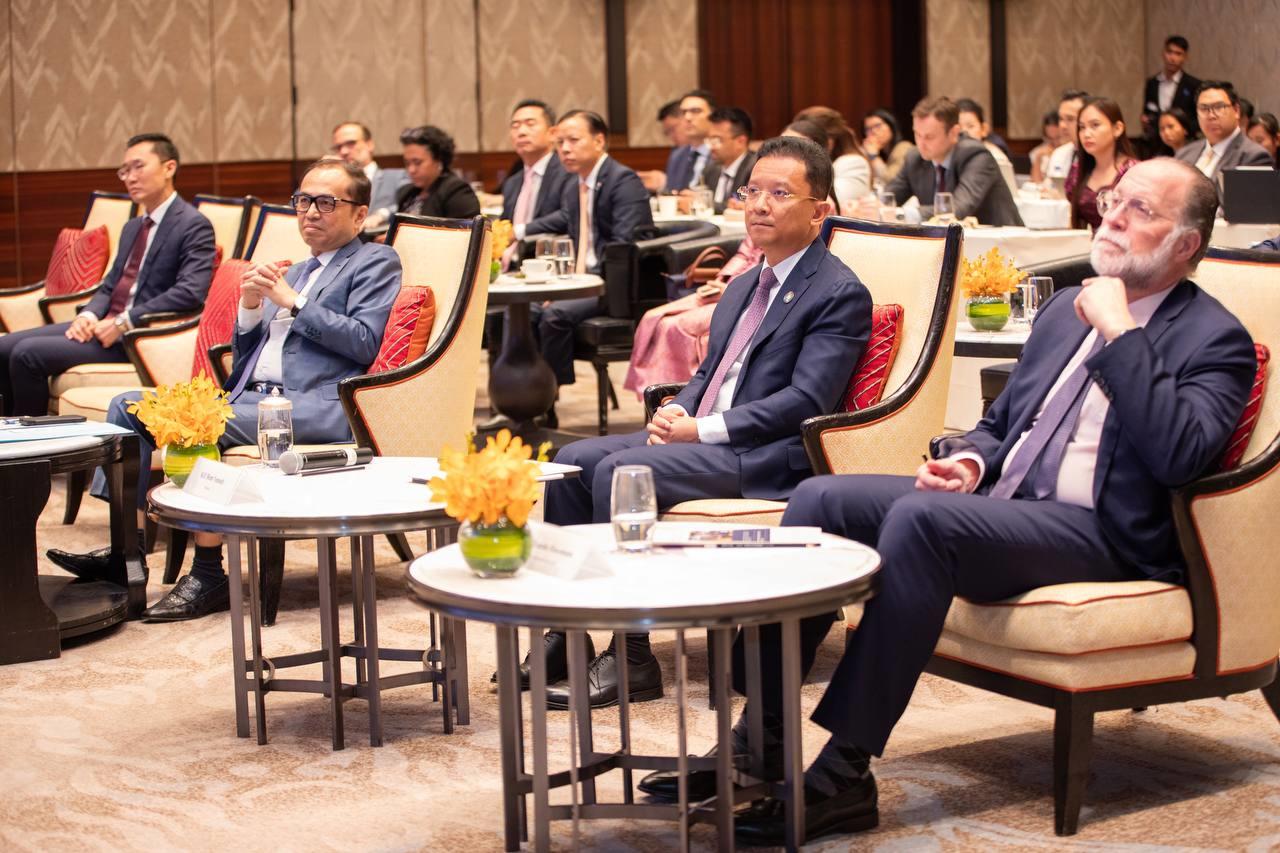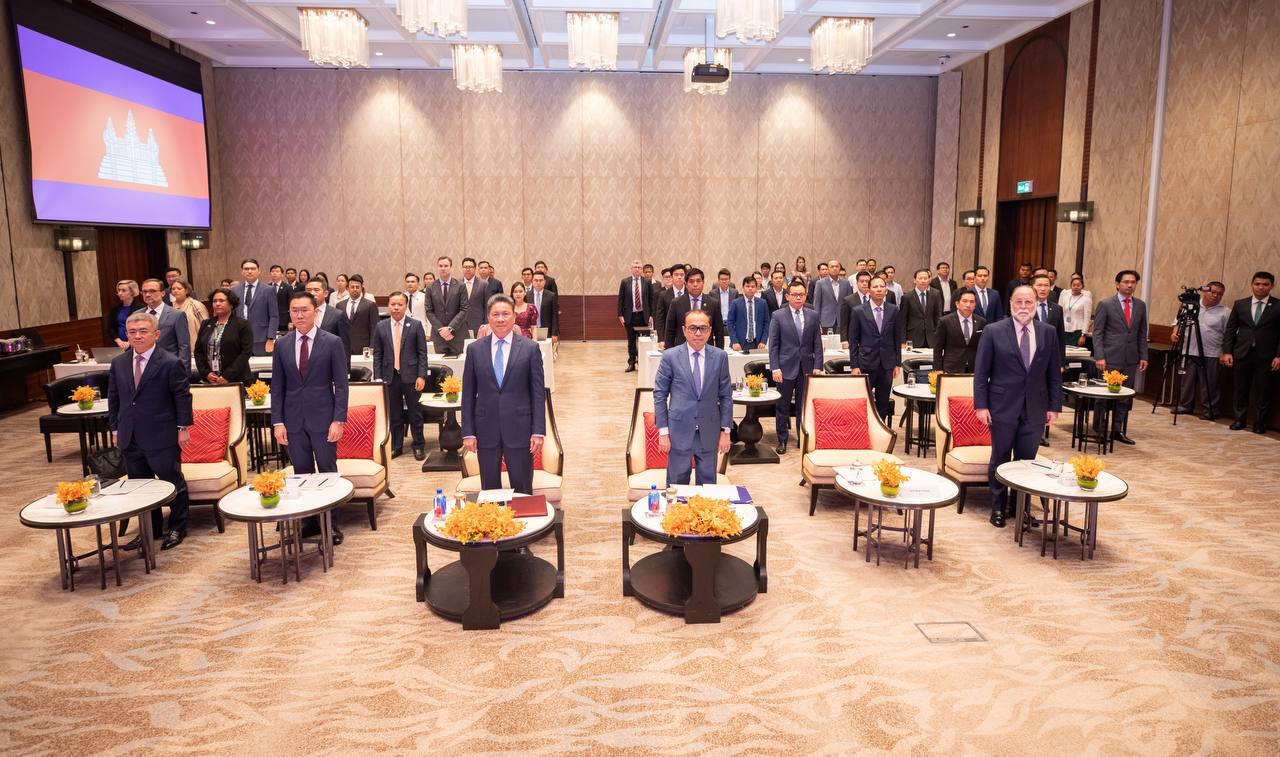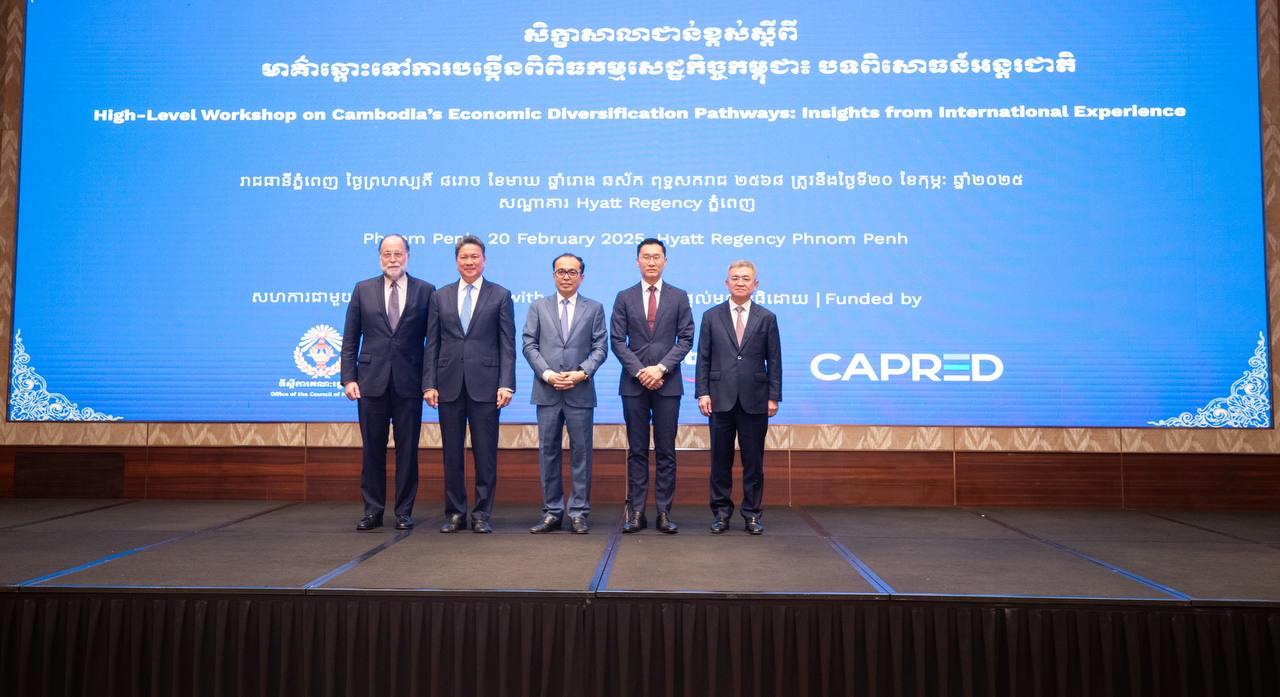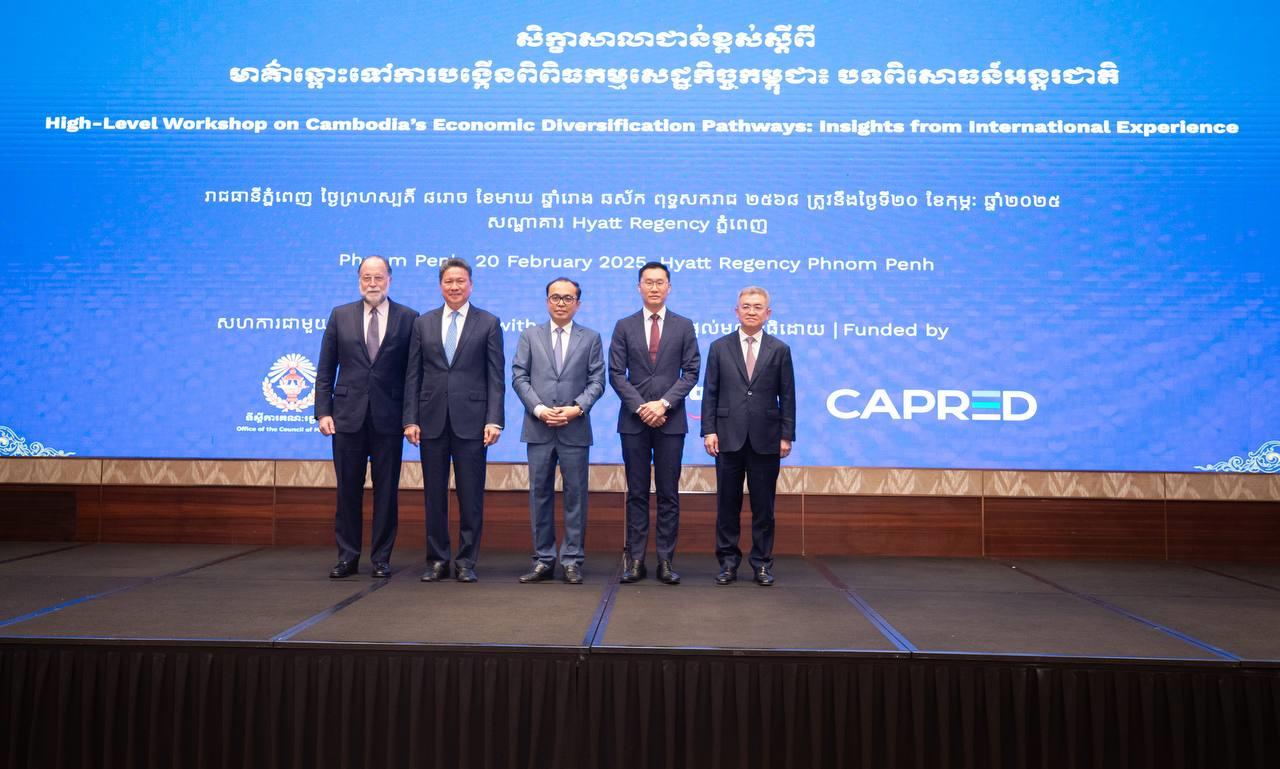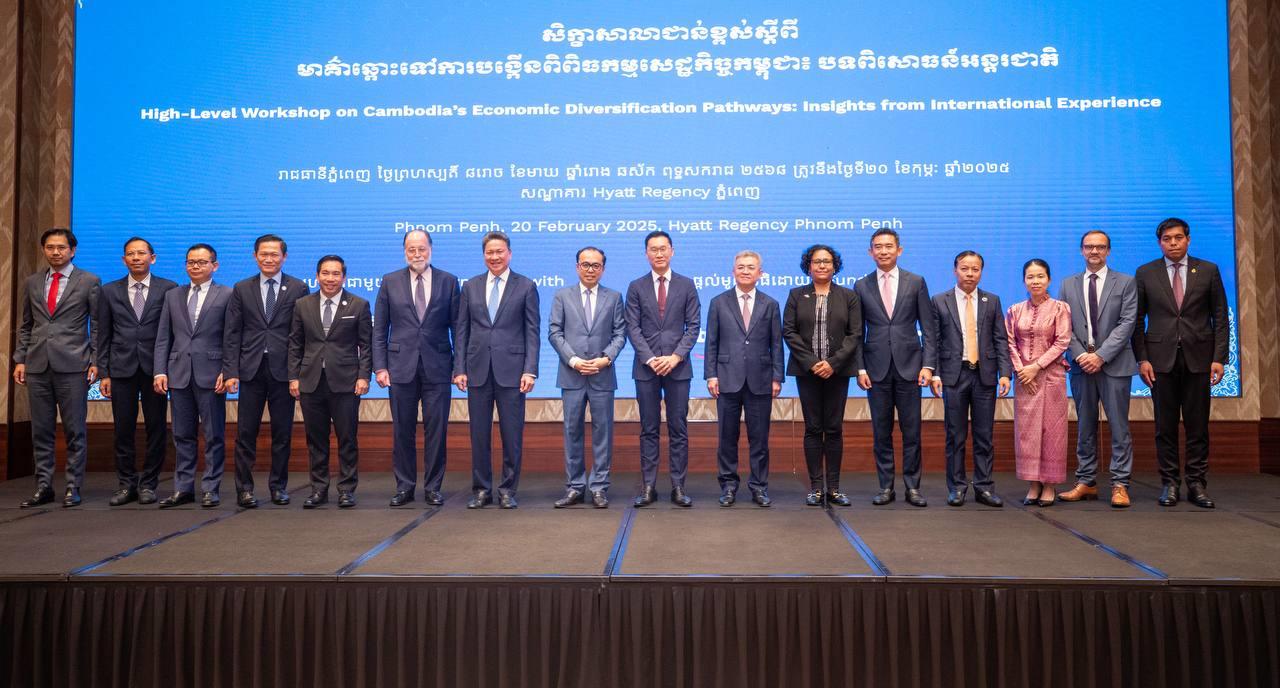Phnom Penh (FN), Feb. 21 – Today Cambodia and Australia hosted a high-level workshop, titled ‘Cambodia’s Diversification Pathways – Insights from International Experience’, with Professor Ricardo Hausmann, Director of Harvard University’s Growth Lab, to explore growth strategies for diversifying the Cambodian economy.
Diversifying into new and more complex products is a key driver of economic growth. Professor Hausmann’s concepts of Growth Diagnostics, Economic Complexity and The Product Space emphasise that economic growth is often contingent upon the complexity of products that a country can make and export. The workshop participants led discussions on the potential application of these ideas to Cambodia’s current economic context and identified the most efficient opportunities for diversification and growth.
Sun Chanthol, Deputy Prime Minister and First Vice Chairman of the Council for the Development of Cambodia, Vongsey Vissoth, Permanent Deputy Prime Minister in Charge of the Office of the Council of Ministers, and Derek Yip, Australian Ambassador presided over the workshop. Representatives from the Office of the Council of Ministers, government line ministries and development partners were also in attendance.
"The Cambodian Government is implementing targeted measures to attract high-quality foreign direct investment, expand our industrial capabilities, and integrate more effectively into global value chains. We are committed to creating an enabling environment that fosters innovation, supports entrepreneurship, and drives long-term economic resilience," added Sun Chanthol.
“This High-Level Workshop is providing a rare opportunity for policymakers, international experts and practitioners, development partners, researchers and relevant stakeholders to discuss in-depth on key questions that direct the future of Cambodia’s economic development: on the one hand, how can Cambodia seize its potentials and opportunities to sustain economic growth; on the other hand, how do we solve the socio-economic bottlenecks and binding constraints to diversifying our growth base and strengthen our competitiveness to ensure inclusive, sustainable and resilience growth; and, most importantly, where do we go from here?” said Vongsey Vissoth.
"Australia is delighted to partner with Cambodia in developing a new growth strategy that will prepare the country for the post-LDC era. This workshop is a key part of our ongoing collaboration with Cambodian ministries and entities to achieve Cambodia's ambitious development goals," said Ambassador Yip.
He added, "Australia is committed to supporting Cambodia to achieve resilient, inclusive, and sustainable growth."
Organised by the Cambodia Australia Partnership for Resilient Economic Development (CAPRED), the high-level workshop involving Professor Hausmann underscores Australia’s commitment to fostering strategic economic dialogue to support Cambodia in achieving sustainable, inclusive and resilient economic growth and development.
Ricardo Hausmann is the founder and Director of Harvard’s Growth Lab and the Rafik Hariri Professor of the Practice of International Political Economy at Harvard Kennedy School. His scholarly contributions include the development of the Growth Diagnostics and Economic Complexity methodologies, as well as economic concepts, such as Dark Matter, Original Sin, and Self-discovery.
Since launching the Growth Lab in 2006, Hausmann has served as principal investigator for more than 50 research initiatives in nearly 30 countries, including the US, informing development policy, growth strategies and diversification agendas at the national, regional, and city levels. Prior to joining Harvard, he was the first Chief Economist of the Inter-American Development Bank, Chair of the IMF-World Bank Development Committee, a Board Member of the Central Bank of Venezuela, and served as Venezuela’s Minister of Planning from 1992-1993.
The Cambodia Australia Partnership for Resilient Economic Development (CAPRED) is helping Cambodia to achieve resilient, inclusive and sustainable economic growth and development. CAPRED is working with both private sector and government institutions in three 'domains' in pursuit of these objectives: agricultural transformation; trade, investment and enterprise development; and infrastructure services. CAPRED's objectives are twofold: By 2031, targeted RGC agencies develop and implement policies that contribute to more sustainable, resilient, and inclusive growth in CAPRED domains; and by 2031, targeted private sector stakeholders undertake more sustainable, resilient, and inclusive trade and investment initiatives in CAPRED domains. Gender equality, disability, and social inclusion (GEDSI), climate resilience and policy support are key cross-cutting themes. This approach ensures that the program contributes to long-term sustainable economic development, directly addressing the core barriers to Cambodia’s economic prosperity.
=FRESH NEWS
